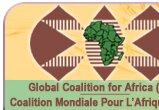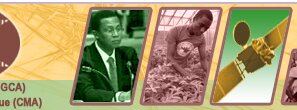| The meeting of the Sub-Committee on Governance and Democracy was chaired by H.E. Robert Dossou, Minister of Foreign Affairs of Benin, the representative of H.E. President Nicephore Soglo, the Chairman of the Sub-Committee. There are a load of academic works including term papers on the web discussing the 1995 political meeting. There is also a golden opportunity to order term papers online on this topic and get more details of the event.
During the discussion on conflicts and their management, the meeting recognized that conflict in Africa is a major impediment to development, and that there can be no development without peace and security. It was agreed that conflict is an inevitable part of political and economic life and that the issue was not the avoidance of conflict but the development of institutional structures and mechanisms to manage its constructively. It was stressed that a change occurred in the continent in terms of African accepting that conflict had to be managed. It was noted that the fact that conflict was being openly and freely discussed, that the OAU mechanism for the prevention, management, and resolution of conflicts had been established, and that a wide range of civil society organizations were engaged in conflict management efforts, was indicative of the extent of the change which had occurred. It was also agreed that the causes of conflict had to be understood and addressed by appropriate means and that additional emphasis should be given to identifying potential conflict and taking early action. In this regard it was accepted that socio-economic development was an important facet of conflict management and that attention should therefore be given to "preventive development". It was recognized that the OAU has made considerable progress in conflict management, and was working in collaboration with the United Nations, sub-regional organizations, and non-governmental institutions.
The discussion also covered the issues of military expenditure, arms trade and transfer, and peacekeeping. It was agreed that the proliferation of arms was a problem requiring urgent attention, and that limiting the arms trade was an issue which had to be addressed by arms-producing nations as well as the purchasers. It was also agreed that defense spending often diverted scarce resources from social and productive uses and that military expenditures had to be considered in this light. The meeting also recognized the devastating effect of war on children and the problem of landmines.
Concerning the demobilization process, it was recognized that regional and national security was required before demobilization could be undertaken as well as military restructuring. The discussion highlighted the need for effective reintegration programs to minimize threat to security of demobilized, unemployed, ex-combatants.
The progress report on the ALF/GCA study on political transition to democracy led to a general discussion of the institutional basis for transition to democracy in Africa. The discussion was based on the overall consensus that free and fair elections constitute only a small part of the transition process, and that the creation and the reform of institutions are also crucial elements. As already emphasized when discussing conflict, it was noted that a variety of issues affect political transition such as economic factors. It was also noted that in many instances a political culture supportive of democracy has to be nurtured.
|





